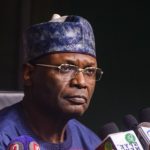The House of Representatives is deliberating on a constitutional amendment to create a dedicated account for all borrowed funds, credits, and grants received by the Federal Government. The bill, sponsored by Mansur Soro, representing Darazo/Ganjuwa Federal Constituency in Bauchi State, aims to enhance transparency in the utilization of borrowed funds.
Currently under review by the Committee on Constitution Review, the proposal seeks to separate Internally Generated Revenue (IGR) from borrowed funds, a move Soro says will make monitoring and accountability more effective.
“Having both IGR and borrowed funds in a single account makes tracking difficult and less transparent,” Soro explained in an interview with *Sunday PUNCH*. “This bill will not only separate the two but also mandate periodic reports on loan utilization to ensure full disclosure.”
Soro highlighted the urgency of the bill, noting that the Federal Government’s debt profile exceeds N134 trillion, necessitating greater accountability in managing loans.
### Strengthening the Sovereign Investment Authority
In a related bill co-sponsored by Isiaka Ibrahim, representing Ifo/Ewekoro Federal Constituency in Ogun State, the lawmakers are advocating for constitutional amendments to strengthen the National Sovereign Investment Authority (NSIA) and abolish the Excess Crude Account (ECA).
The proposal seeks to channel excess revenue from hydrocarbon sales into the NSIA for investment on behalf of the federation, ensuring all tiers of government benefit as investors.
Soro criticized the current system, where ECA funds are frequently used for Federal Government expenditures, including arms procurement, at the expense of long-term savings. “If we fail to save adequately for the rainy day, posterity will not forgive us,” he warned.
### Caution Against Reckless Borrowing
Soro also urged the Federal Government to exercise restraint in taking loans, emphasizing that borrowing should only occur when absolutely necessary. He called on President Bola Tinubu’s administration to focus on blocking revenue leakages and curbing corruption in public spending to reduce the reliance on loans.
“We are already facing a financial crisis,” Soro stated. “This is the time to apply the brakes and prioritize sustainable economic practices.”
The proposed bills reflect growing concerns over Nigeria’s rising debt profile and underscore the need for transparent and prudent financial management.




